The latest incarnation of the Doctor Who Experience opened its doors to the public today. The show’s popularity was itself on view, as queues stretched down the road while fans snapped photos of a few unexpected arrivals: a Dalek, Cyberman, Silence, and Silurian mingled with the crowd and posed menacingly for pictures. There was even an official opening ceremony. A younger visitor dressed as the eleventh Doctor – complete with fez – cut the ribbon and got the show on the road.
Inside, the new building is filled with lovely details. Chris Achilleos-style illustrations (presumably using Anthony Dry’s artwork) adorn the final queuing area and the café, and “Exterminate!” graphics eventually usher you out of the gift shop. Bessie sits inside the main entrance, looking every bit as resplendent, shiny and new as her box-fresh surroundings.
Many fans will have visited the previous Experience based at London Olympia. This version shares much of its DNA with that earlier venture: the interactive walk-through part seems pretty much identical. Given that the Doctor Who Experience will be based in its new Cardiff home for at least five years, focusing on the Pandorica might start to seem like ancient (series) history as that tenancy progresses. Nevertheless, the series five-centric walk-through does a great job of capturing the energy, wit and feel of televised Doctor Who, featuring some great effects, spooky monsters and impressive 3D. You’ll probably never view a Dalek sucker arm in the same light.
The exhibition part of the Experience is where value is really added for return visitors, as there’s a good selection of props on show here for the first time. These include the Silence spaceship (appropriately enough, lurking upstairs), the cyber conversion chamber from Closing Time, the Doctor’s cot from A Good Man Goes To War, and Let’s Kill Hitler’s antibodies. The most recent Christmas Special is also represented by items such as the Doctor’s spacesuit.
But for visitors new and old alike there are some exhibits that continue to be show-stoppers; downstairs there are various Police Box props scattered between TARDIS interiors like the “Coral desktop theme” and the Junkyard version featured in The Doctor’s Wife. And the Doctor’s many costumes also form a central part of the exhibition space. Housed across two floors, displays really have room to breathe, and you get a wonderful sense of scale and scope as you walk up the interior staircase, able to gaze down at ground-floor exhibits, and take in the Melkur and the RTD-era TARDIS alongside all the many costumes.
Upstairs, Daleks and Cybermen get their own dedicated areas, and one can’t help but wonder whether Asylum of the Daleks was partly inspired by a certain showrunner witnessing different eras of Daleks lined up together in the Experience. A Zygon and an Ice Warrior also stand together, daring fans to speculate about yet more returning monsters. As well as exploring the sounds of Doctor Who, the upper floor illuminates design processes, using the eleventh Doctor’s TARDIS interior as a case study, and demonstrates the various stages of monster creation by focusing on an Ood. An assortment of props, among them a rug from the series six White House and a time glass from The Girl Who Waited, round things off before visitors are directed out via the gift shop. I love a little shop, and this one is well stocked with DWE exclusives (something which wasn't true when the Olympia Experience first opened). Mind you, I would've liked to see more Cardiff-specific merchandise carrying the brand new ‘Porth Teigr’ identity.
Overall, this was an extremely well-handled opening day; queues seemed fast-moving, and the monster alliance outside the venue was well received by everyone. And the new venue has Doctor Who threaded right through it. At the Olympia it was only when you exited from a characterless lift that you felt you'd stepped out of impersonal corporate space and into the colourful, thrilling Whoniverse. Not so now; this is a far more unified Who experience. Even before you get into the building there’s a brilliant Police Box landing bay visible as you approach. It will apparently be lit at night, but even during the day it makes a wonderfully welcoming icon (rather like the old TARDIS entrance that used to greet visitors to the Longleat exhibition back in the day). Whether you’ve been to the DWE before, or have always wanted to go, this regenerated version is well worth a visit.
Tickets are available now from doctorwhoexperience.com.
Inside, the new building is filled with lovely details. Chris Achilleos-style illustrations (presumably using Anthony Dry’s artwork) adorn the final queuing area and the café, and “Exterminate!” graphics eventually usher you out of the gift shop. Bessie sits inside the main entrance, looking every bit as resplendent, shiny and new as her box-fresh surroundings.
Many fans will have visited the previous Experience based at London Olympia. This version shares much of its DNA with that earlier venture: the interactive walk-through part seems pretty much identical. Given that the Doctor Who Experience will be based in its new Cardiff home for at least five years, focusing on the Pandorica might start to seem like ancient (series) history as that tenancy progresses. Nevertheless, the series five-centric walk-through does a great job of capturing the energy, wit and feel of televised Doctor Who, featuring some great effects, spooky monsters and impressive 3D. You’ll probably never view a Dalek sucker arm in the same light.
The exhibition part of the Experience is where value is really added for return visitors, as there’s a good selection of props on show here for the first time. These include the Silence spaceship (appropriately enough, lurking upstairs), the cyber conversion chamber from Closing Time, the Doctor’s cot from A Good Man Goes To War, and Let’s Kill Hitler’s antibodies. The most recent Christmas Special is also represented by items such as the Doctor’s spacesuit.
But for visitors new and old alike there are some exhibits that continue to be show-stoppers; downstairs there are various Police Box props scattered between TARDIS interiors like the “Coral desktop theme” and the Junkyard version featured in The Doctor’s Wife. And the Doctor’s many costumes also form a central part of the exhibition space. Housed across two floors, displays really have room to breathe, and you get a wonderful sense of scale and scope as you walk up the interior staircase, able to gaze down at ground-floor exhibits, and take in the Melkur and the RTD-era TARDIS alongside all the many costumes.
Upstairs, Daleks and Cybermen get their own dedicated areas, and one can’t help but wonder whether Asylum of the Daleks was partly inspired by a certain showrunner witnessing different eras of Daleks lined up together in the Experience. A Zygon and an Ice Warrior also stand together, daring fans to speculate about yet more returning monsters. As well as exploring the sounds of Doctor Who, the upper floor illuminates design processes, using the eleventh Doctor’s TARDIS interior as a case study, and demonstrates the various stages of monster creation by focusing on an Ood. An assortment of props, among them a rug from the series six White House and a time glass from The Girl Who Waited, round things off before visitors are directed out via the gift shop. I love a little shop, and this one is well stocked with DWE exclusives (something which wasn't true when the Olympia Experience first opened). Mind you, I would've liked to see more Cardiff-specific merchandise carrying the brand new ‘Porth Teigr’ identity.
Overall, this was an extremely well-handled opening day; queues seemed fast-moving, and the monster alliance outside the venue was well received by everyone. And the new venue has Doctor Who threaded right through it. At the Olympia it was only when you exited from a characterless lift that you felt you'd stepped out of impersonal corporate space and into the colourful, thrilling Whoniverse. Not so now; this is a far more unified Who experience. Even before you get into the building there’s a brilliant Police Box landing bay visible as you approach. It will apparently be lit at night, but even during the day it makes a wonderfully welcoming icon (rather like the old TARDIS entrance that used to greet visitors to the Longleat exhibition back in the day). Whether you’ve been to the DWE before, or have always wanted to go, this regenerated version is well worth a visit.
Tickets are available now from doctorwhoexperience.com.
(With thanks to: BBC Worldwide Press Office)

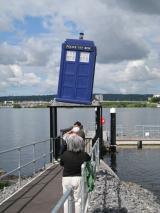
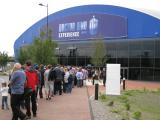
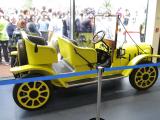
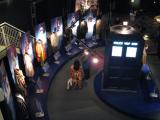
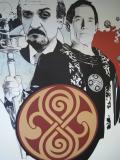
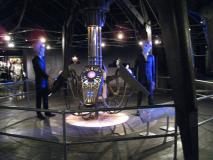
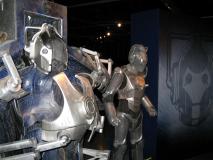
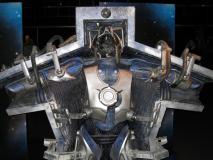
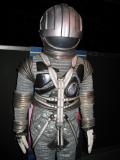
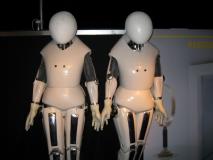
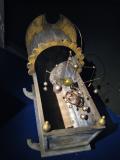
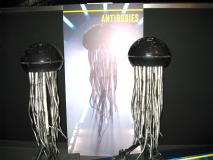
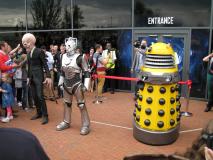
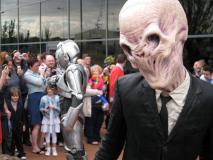
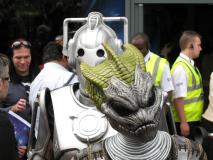
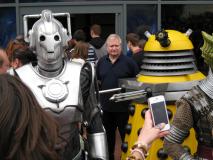
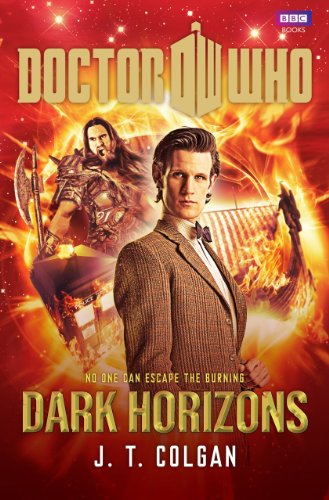 Written by J. T. Colgan
Written by J. T. Colgan Circle us on Google+
Circle us on Google+